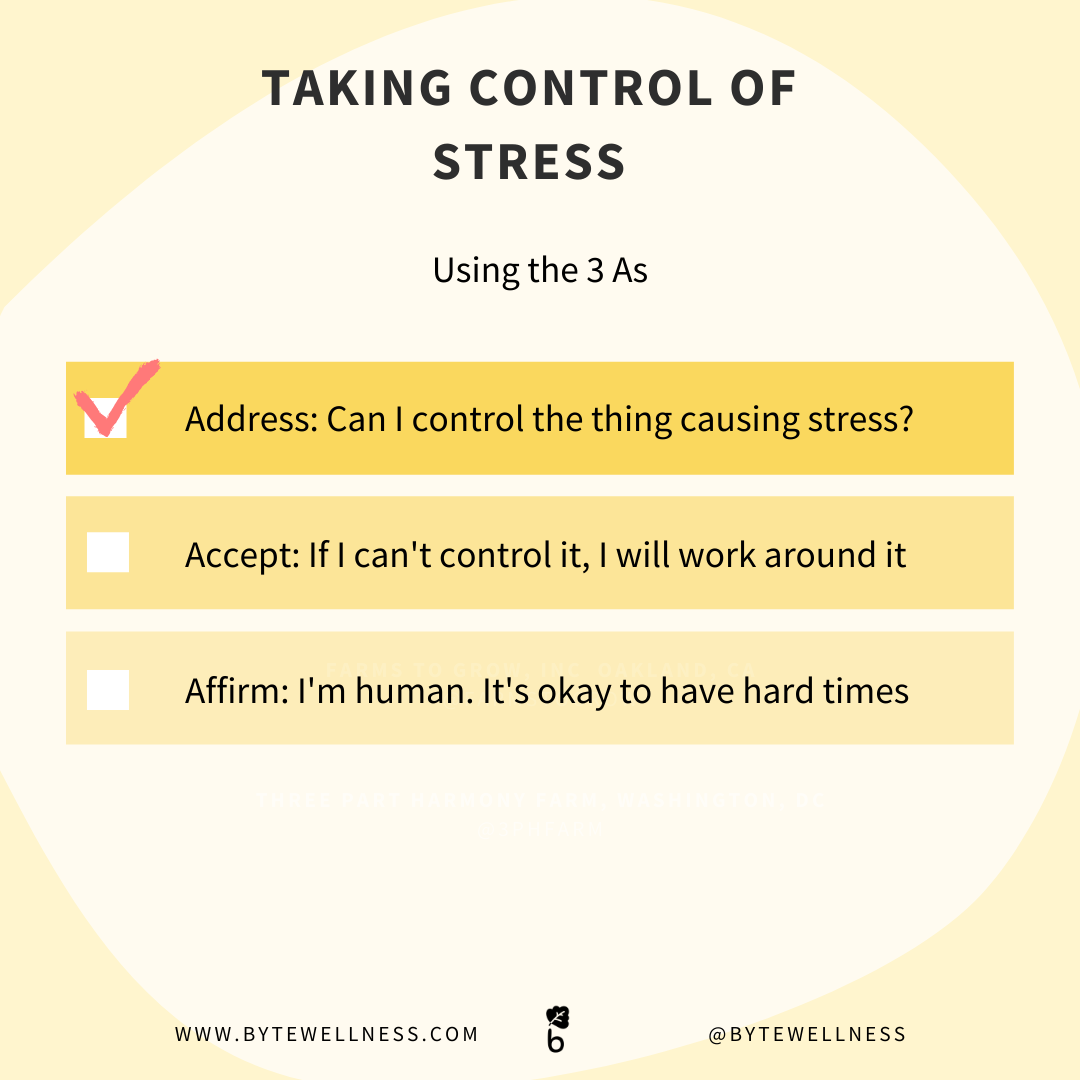Getting a Handle on Stress
Hi Byte Wellness Fam!
We’re onto another week in our Wellness Reset summer bootcamp. Not too late to join the conversation here.
How Much Stress is Normal?
There’s no one-size-fits-all “normal” level of stress. The amount of stress we feel varies at any given moment. And, individuals respond differently to stress. So the question isn’t so much, “what level of stress is normal?”, it’s “what level of stress is healthy for me?”.
How do we know if we have unhealthy levels of stress? We pay attention to how it shows up in our minds and bodies.
Last week, we talked about the connection between stress and chronic inflammation- which can lead to otherwise preventable conditions like high cholesterol, high blood pressure, type 2 diabetes, obesity, heart attack, stroke.
Unhealthy levels of stress can also disrupt our sleep, appetite and energy patterns.
To pick up on all these issues, we can check in with our healthcare providers, get labs done and generally pay attention to how we’re feeling.
In an ideal world, we can manage our stress to keep it at relatively low levels on most days. But, it doesn’t always work that way.
Validated surveys like the Perceived Stress Scale can give us some insight into how much stress we feel on a regular basis.
Try taking the 10-question PSS here to see where your score falls (0-40).
How to Lower Stress
In most cases, we can reduce the experience of stress to one main problem: we feel like we don’t have enough control over ourselves and the situations we find ourselves in.
We might feel helpless to control events happening around us or we might feel like we don’t have the skills to manage our responsibilities (that’s low self-efficacy).
Stress is very relative. Put two people in any situation, and they will probably feel different levels of stress based on whether they feel they have enough control over the situation.
In other words, our PERCEPTION of our situations and our capabilities are what turn events into stressors. So, our mindset can turn any event (even typically happy ones) into stress.
That’s not all bad news. If we can create stress with our minds, we can also reduce stress with our minds.
Managing stress is as much about perception as it is about taking action. Obviously, our lives are filled with things we can’t control.
So, the first step in managing stress is deciding what we can realistically control.
Next, we work to make peace with the things we can’t control. That’s where faith and spirituality come into play.
Finally, we avoid the double stressor of stressing about our stress. Instead of fighting difficult feelings, we just accept them.
The 3 As help us shift our perspective in order to take control of the way stress shows up in our bodies (even when we can't control everything around us).
Address: Am I feeling stressed about things I can control? What can I do to change those things and make them less stressful?
Accept: Am I stressing myself out by trying to change things I can't control?
Affirm: Am I stressing myself out by fighting my feelings?
More on managing stress next week! Don’t forget the discussion questions:
Discussion Question:
Which things, people and situations cause me stress? Which can I control?
This question is a good way for us to set the groundwork for the Address and Accept steps of the 3 As. Hit the comments to let me know what you think.
Happy Healthy Living,
Dr. Wuse

